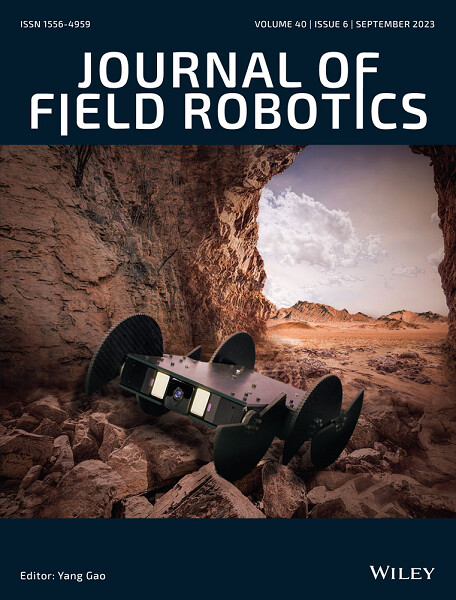Improving Localization Accuracy of Offline Navigation Algorithms for Intelligent Pipeline Inspection Gauges and In-Line Inspection Robotic Systems
Abstract
Integrity management of pipeline networks is crucial for preemptive maintenance and preventing accidents. In this study, various methods for improving the localization accuracy of the offline navigation algorithm for an intelligent pipeline inspection gauge (PIG) and in-line inspection (ILI) robotic system are proposed. The digital mapping algorithm utilizes the extended Kalman filter (EKF) with a Rauch–Tung–Striebel (RTS) smoother. Two ILI tools are introduced—magnetic flux leakage (MFL) PIG, which is a typical intelligent PIG for detecting corrosion defects in pipelines, and a new low-friction geometry robot (LFGR) for inspecting the mechanical defects in low-pressure, low-flow pipelines. The MFL PIG has only three odometers to measure the speed of the PIG along the moving direction. Hence, a compensation method for the measured speed was developed and utilized. In addition, an optimization procedure for the parameters of sensor uncertainty modeling was proposed and validated. These methods increased the localization accuracy of the digital mapping algorithm of the MFL PIG. Specifically, the root mean squared value of the two-dimensional distance error decreased by 47.73%. The proposed methods were applied to the LFGR equipped with four odometers and a high-accuracy inertial measurement unit. Moreover, additional sensors and a new algorithm for attitude angle correction of the robot were utilized. The proposed methods were successfully validated using field ILI results. The methods enhance the effectiveness of the integrity management of pipeline systems, thus contributing toward their safe and reliable operation.

 求助内容:
求助内容: 应助结果提醒方式:
应助结果提醒方式:


